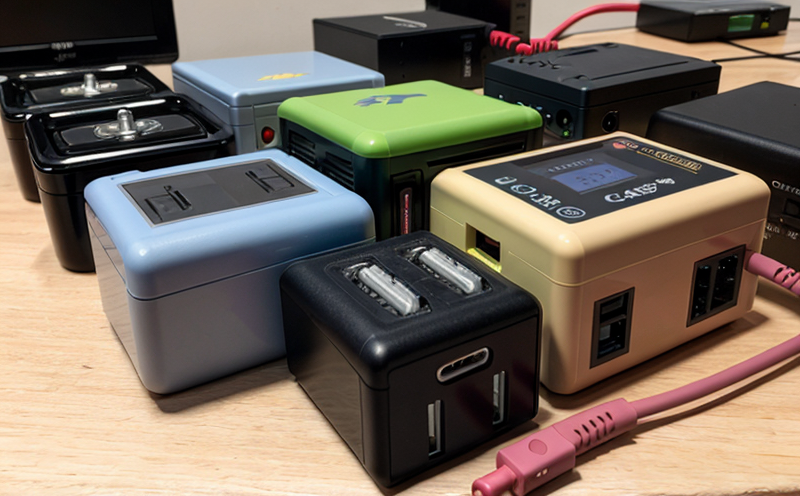Vibration Testing of Battery Packs
The vibration testing of battery packs is a critical phase in ensuring that consumer products and industrial equipment meet stringent safety standards. This service ensures that battery packs can withstand the rigors of transportation, usage, and storage environments, thereby protecting consumers from potential hazards such as overheating, short circuits, or explosive failures.
Consumer products often undergo significant mechanical stress during their lifecycle, including vibration due to transportation in vehicles, handling, and operation. Vibration testing simulates these real-world conditions by subjecting the battery pack to controlled oscillatory movements within specified frequency ranges and amplitudes. This process helps identify any structural weaknesses or electrical issues that could lead to failure.
The importance of this test cannot be overstated in today’s fast-paced market, where product safety is paramount. By incorporating vibration testing early in the development cycle, manufacturers can pinpoint design flaws before large-scale production and distribution begin. This proactive approach not only enhances product reliability but also reduces costly recalls and reputational damage.
Vibration testing for battery packs typically involves placing the unit on a shaker table that simulates various environmental conditions. The test parameters include frequency, amplitude, and duration, which are determined based on industry standards like ISO 6853-1 and ASTM D2794. Compliance with these standards ensures that the results are universally accepted.
During testing, the battery pack is subjected to controlled vibrations to assess its mechanical integrity. Engineers monitor parameters such as temperature changes, internal resistance variations, and current fluctuations to determine if any damage has occurred. The test concludes when all specified conditions have been met or a failure point is reached.
The outcome of this testing process provides valuable insights into the durability and safety of battery packs under dynamic loading scenarios. This information is crucial for ensuring that products meet regulatory requirements and provide safe performance in various applications, from portable electronics to electric vehicles.
Scope and Methodology
| Parameter | Description |
|---|---|
| Vibration Frequency Range | Typically 10 Hz to 500 Hz, depending on the product's intended use. |
| Vibration Amplitude | Amplitudes range from 2 mm to 4 mm RMS (Root Mean Square). |
| Durability Time | The duration varies based on the specific requirements of the product, ranging from a few minutes up to several hours. |
| Environmental Conditions | Includes temperature and humidity control to simulate real-world conditions. |
| Data Collection | Data is collected using sensors embedded within the battery pack or connected externally. |
Why Choose This Test
Ensures compliance with international safety standards like ISO 6853-1 and ASTM D2794.
Avoids costly product recalls by identifying design flaws early in the development cycle.
Protects consumer safety by enhancing battery pack durability under dynamic loading conditions.
Improves brand reputation through consistent adherence to high-quality testing protocols.
Competitive Advantage and Market Impact
Provides a significant competitive edge by offering advanced vibration testing capabilities tailored specifically for battery packs.
Facilitates faster time-to-market by identifying potential issues early in the development process.
Vibration testing of battery packs is essential in today’s highly regulated market. By ensuring that your products meet these stringent standards, you can gain a competitive edge and build trust with consumers. This service not only enhances product reliability but also helps manufacturers stay ahead of regulatory changes and industry trends.
Consumer electronics and automotive industries are particularly reliant on this testing method to ensure the safety and performance of their products. By leveraging our expertise in vibration testing, you can rest assured that your battery packs meet the highest standards of quality and safety.





